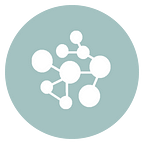Blockchain and ARTiFACTS: Powering Proof of Existence
We’ve previously discussed why we think sharing research artifacts can be beneficial to researchers, one of those reasons being to make them discoverable for others to use and cite. And many researchers would agree that sharing data is important. In fact, research conducted by Springer Nature, found that 76 percent of researchers highly rated the importance of making their data discoverable with an average rating of 7.3 out of 10. And 25 percent rated its importance a 10 out of 10.
By sharing and making data (and, indeed, all research outputs) discoverable, researchers can find collaborators, speed innovation, avoid duplication of efforts, support peer review, aid in reproducibility, and increase their chances of attribution and citation.
Still, many are reticent to reveal exactly what they’re working on, much less all the test results, observations, datasets and more that have gone into it. While the reasons are varied — among them fear of data misuse, concern about IP rights, lack of time/resources, data unorganized/not ready to share — we believe ARTiFACTS can provide a solution to at least one of those challenges by establishing proof of existence (PoE).
Here’s Your Proof
ARTiFACTS is a blockchain-based platform purpose-built for academic and scientific researchers to safely and permanently record all scientific and scholarly artifacts right within their workflow from the earliest stages of research. By using the ARTiFACTS platform, researchers can immutably and irrefutably prove ownership and existence of novel work and provide access to that work for like-minded researchers to discover, use and, importantly, provide real-time attribution and citation. This helps researchers comprehensively and rapidly build and demonstrate their body of scholarly contributions — without waiting for a lengthy publication cycle with no guarantee of acceptance.
The secret sauce to this, of course, is blockchain. In the simplest terms, a blockchain is a permanent, unalterable, secure, and transparent ledger of transactions that is updated in real time and distributed across a peer-to-peer network of nodes. Each transaction includes a timestamp and encrypted identification information. Anything added to the platform can be made public or kept private and users can choose when to transact it on the blockchain.
So, when a researcher is ready to share a dataset, a working paper, observations — anything related to their work, including rich multimedia — they can do so with peace of mind. Here’s how …
When a researcher posts something to ARTiFACTS they can “transact” it on the blockchain with a single click. This transaction creates a unique encrypted identifier, or hash, that is time stamped and cannot be deleted or altered. This allows the researcher to prove that they owned that work at least as early as the time the transaction was confirmed. And this proof of existence is distributed across every node, making it virtually impossible to tamper with. What’s more, the researcher decides whether to reveal their identity and the contents of that data. Thus, researchers can protect their work without actually sharing anything if they choose not to. Of course, if a researcher does choose to share their research outputs — whether publicly or only to a small group of people — they are still protected by the same mechanisms.
Provenance, Too
Not inconsequentially, blockchain can also establish data provenance because every transaction is immutable and transparent. Any changes to your data are recorded as a new transaction; data cannot be overwritten, edited or deleted. Knowing from whom and where data came from and how it has evolved as the research progresses can be critical in reproducibility and verifiability.
With all the potential benefits of sharing your work — and now the ability to prove it’s yours — what’s holding you back? Share your challenges and comments below.
To learn more about ARTiFACTS or to try the system for yourself, go to artifacts.ai.
